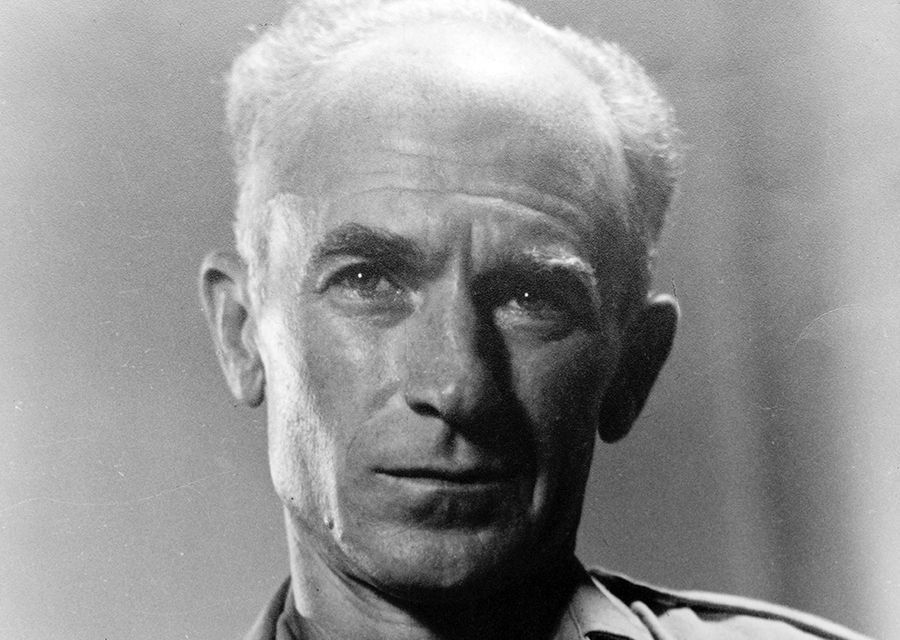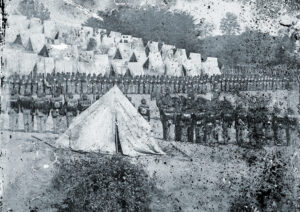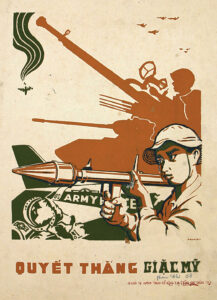In 1943, the columnist met with playwright Arthur Miller to discuss film—and, inadvertently, philosophy.
Newspaper reporters are seldom popular. They are the bearers of bad tidings. They ask embarrassing questions and reveal unpleasant facts. They’re frequently pushy and obnoxious. In opinion polls, Americans rate reporters at the bottom of the esteem spectrum, along with politicians, lobbyists and used-car salesmen. But 70 years ago, one reporter was beloved by millions of Americans. His name was Ernie Pyle.
Pyle, a scrawny, balding Hoosier, started writing a syndicated column in 1935, when he was 35. He drove around the country in a Ford coupe with his wife, Geraldine, meeting folks and chronicling their lives with sympathy and gentle humor. “He wrote plain pieces about plain people,” CBS correspondent Charles Kuralt recalled decades later. “He was admired in many American households in the thirties and forties. ‘Loved’ is not too strong a word.”
After Pearl Harbor, Pyle became a war correspondent, but he avoided generals and wrote nothing about strategy or politics. Instead, he lived with common soldiers on the front lines in North Africa, Italy and France, sharing their miseries and telling readers what it felt like to be there. “I love the infantry because they are the underdogs,” he wrote in a 1943 column. “They are the mud-rain-frost-and-wind boys. They have no comforts and they even learn to live without the necessities. And in the end they are the guys that wars can’t be won without.”
Pyle’s column was enormously popular, appearing in more than 500 newspapers, some of which printed his pieces under the simple headline “ernie’s column.” On the front lines, GIs read Pyle in Stars and Stripes and hoped he’d write about their unit. During the war, his columns were collected in two books—Here Is Your War and Brave Men—which together sold more than a million copies.
In 1943 Hollywood producer Lester Cowan bought the film rights to Here Is Your War and vowed to make a movie that would avoid clichés and capture the reality of combat. He hired a playwright named Arthur Miller to write the screenplay. Twice rejected for military service, Miller, 28, was the author of several unsuccessful plays and some radio dramas. Cowan gave Miller Pyle’s book and sent him off to Army bases to interview GIs.
While Miller worked in New York, Pyle covered the Allied invasion of Sicily and grew increasingly depressed by the horrors he witnessed. He saw too many men die. In September 1943, after 15 months overseas, he took a vacation and went home to see his wife. “I came home to refreshen my sagging brain and drooping frame,” he explained to his readers. “To put it bluntly, I just got too tired in the head.”
Back home in Albuquerque, Pyle saw that Geraldine was also “tired in the head.” An alcoholic, she’d been depressed for years, and she’d attempted suicide several times. The couple had a difficult relationship—they’d already divorced and remarried—and Ernie’s absence exacerbated Jerry’s depression. On his vacation, these two troubled souls tried to soothe each other’s pain, but nothing seemed to work.
And then Arthur Miller arrived to discuss the movie. “When I walked up to the little wooden house at the edge of the Albuquerque mesa, I was afraid,” Miller wrote. “The door opened. A skinny man with a gray stubble of beard and a smile as round as the arc of a saucer nodded to me and asked me in.”
Miller was nervous because he and Pyle had different views of the war. Pyle was apolitical and wrote a grunt’s-eye view of combat—muddy foxholes, lousy food, wet socks and sudden death. Miller was a leftist who hoped to illuminate the meaning of the war: It was, he believed, an epic struggle between democracy and fascism.
“The war is about something,” Miller said. “What do you think it’s about, Ernie?”
“Well,” Pyle said, mulling the question as he petted his dog, “I don’t know. I know what it could be about, but I don’t know what it is about.”
Miller was frustrated by Pyle’s refusal to ponder big ideas. “If the picture were to leave out the ideas being born in this war, and the ideas being destroyed in this war,” he wrote, “what remained would be a meaningless pantomime of bloodshed.” He struggled to explain to Pyle what he wanted the movie to say.
“Ernie, I want to tell you about a scene I have in mind for the picture,” he said.
“Sure,” Pyle replied. “Go ahead.”
Miller outlined his idea. The movie would depict an American platoon fighting in Italy. One of the GIs is a cynical Italian American. When he sees two friends killed, he deserts, sheds his Army uniform and hides out with a local family, pretending to be Italian. Meanwhile, another member of the platoon, a college guy who understands fascism, helps the local villagers overthrow their fascist mayor and choose a democratic mayor. When the villagers celebrate their liberation, the cynical deserter realizes the error of his ways and rejoins his Army buddies.
“I want to give a piece of meaning to all the bloodshed we have shown on the screen,” Miller told Pyle after describing the scene. “What do you think?”
“Well, I’ll be darned,” Pyle said. He petted his dog for a few moments. In his many months on the front lines, he’d never seen anything remotely like Miller’s heavy-handed scene, but he was too depressed to argue. “It’s pretty good. It could happen, I guess.”
“Because I don’t believe this war has no meaning,” Miller said.
“Sure,” Pyle replied. “You put that in.”
In the end, neither Pyle nor Miller exerted much control over the movie. Pyle returned to combat, covering the fighting in Italy and the invasion of Normandy. Miller quit the project and was replaced by several other writers. The movie, titled The Story of G.I. Joe, premiered in 1945 with Burgess Meredith playing Pyle, and it was praised for its realism. Viewed today, though, it seems corny and dated—and not very realistic.
Miller went on to become one of America’s greatest playwrights, creating such classics as The Crucible, All My Sons and Death of a Salesman. He died in 2005 at age 89.
Pyle wasn’t so lucky. He didn’t even live long enough to see The Story of G.I. Joe. After covering the liberation of Paris in 1944, he returned to Albuquerque for another vacation, only to see Geraldine attempt suicide again, this time by stabbing herself with scissors. Ernie stayed with her for a couple of months, then went off to cover the war in the Pacific. On April 18, 1945, on the island of Ie Shima, a Japanese machine gunner shot him in the head. He died instantly.
In his pocket was a half-finished column describing what he’d seen in the war: “Cold dead men scattered over the hillsides and in the ditches. . . . Dead men in such familiar promiscuity that they became monotonous. . . . Dead men in such monstrous infinity that you came almost to hate them.” He didn’t mention democracy or fascism or attempt to explain the meaning of the carnage. He didn’t think that was his job. ✯





